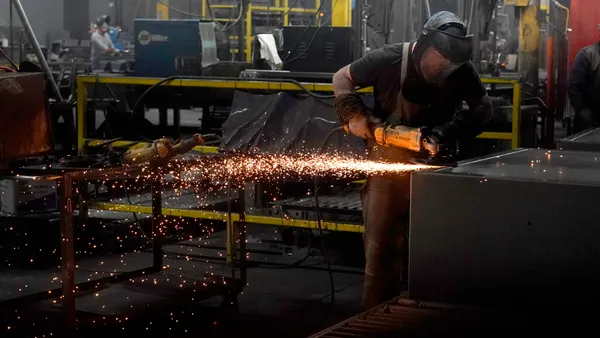Dive Brief:
- More than half of workers (53%) in a recent survey said they feel they aren't skilled enough to avoid a layoff, according to a survey from Cornerstone OnDemand. The learning and talent management firm surveyed 1,000 Americans for insights into how businesses and workers can close the gap between current skills and those needed for job security in the agile workplace.
- Eighty-three percent of respondents think improving professional skills is important; more than half of those who have been laid off believe new skills development could ward off a future layoff; and 64% said they believe development leads to a promotion. Across generational lines, 60% of baby boomers are insecure about their current skills, while 53% of millennials said their workplaces help them pinpoint the skills they need, compared to just 37% of boomers.
- Cornerstone said because employees are eager to learn new skills, career development is a highly valued way to avoid job loss, increase workers' confidence and encourage career mobility and promotions.
Dive Insight:
Employers and workers know that the digital work environment of the future will require new skill sets. A recent report from consulting firm West Monroe Partners found that most employees believe technology helps them deliver top-quality work. And 70% of employers in the report adopted at least one technology that improved employee productivity within the past year.
While some employers have invested in new tech to improve work, not all have invested in the skills training needed. Only 41% of employees in an Axonify study said their employers are preparing them for the future. Interestingly, 76% of the employees said their employer would have greater appeal if it offered more training to help them develop skills for the future. The training they described was infrequent, included the wrong topics or was disengaging.
Fears that automation will lead to layoffs, thereby making skills training for workers unnecessary, may not have merit, some research asserts. According to a KPMG report released in July, tech leaders were more likely to believe that automation will usher in more jobs than it eliminates. On the other hand, most of the HR leaders in the study disagreed. And even with the uncertainty surrounding automation, training and development remain invaluable tools for talent recruitment, retention and engagement.











